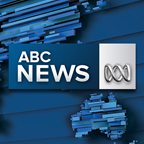
Updated
Qantas says it plans to change its website to refer to Taiwan as a Chinese territory, not an independent nation — bowing to pressure from Beijing.
Key points:
- The move to change the website means Qantas will echo Australia's official position on Taiwan
- Last week, DFAT Secretary Frances Adamson said the Government was "strongly opposed" to Beijing's tactics
- Qantas's international head says the extra time is needed to work through "complexity" on the program
In April, China's aviation regulator gave three dozen airlines a May 25 deadline to remove references on their websites or in other material that suggest Taiwan, Hong Kong and Macau are part of countries independent from China, a move described by the White House as "Orwellian nonsense".
Qantas was granted an extension to decide if they would meet the request.
At the International Air Transport Association (IATA) annual meeting on Monday, Qantas chief executive Alan Joyce said his company planned to comply with the request, although they needed extra time.
"Our intention is to meet the requirements. It is just taking time to get there," Mr Joyce told journalists on the sidelines of the meeting.
Beijing considers self-ruling Taiwan to be part of its territory and the move to change the website means Qantas will echo Australia's official position on Taiwan.
According to the Department of Foreign Affairs and Trade website, "the Australian Government does not recognise the ROC as a sovereign state and does not regard the authorities in Taiwan as having the status of a national government."
 Photo:
Qantas passengers could select Taiwan as their country of origin on the airline's Frequent Flyer website. (Supplied)
Photo:
Qantas passengers could select Taiwan as their country of origin on the airline's Frequent Flyer website. (Supplied)
Despite this, Foreign Affairs Minister Julie Bishop has been strongly against Beijing's attempts to pressure Qantas into changing their website, reaffirming her stance in a statement to the ABC.
"Private companies should be free to conduct their usual business operations free from political pressure of governments," Ms Bishop said in the statement.
"The decision of how Qantas structures its website is a matter for the company's management."
Last week, Senators asked DFAT secretary Frances Adamson about China's attempts to heap pressure on the airlines.
Ms Adamson told a Senate committee that the Federal Government was "strongly opposed" to Beijing's tactics.
"I just want to be clear that while we may express views in a variety of ways — sometimes very publicly, sometimes behind the scenes — the Government cannot be in a position to tolerate the exercise of economic coercion," Ms Adamson said.
The chief executive of Qantas's international unit, Alison Webster, said the decision was not influenced by Qantas's partnership with China Eastern Airlines Corp.
"I don't think the relationship makes any difference to how we review our response," Ms Webster said.
She said Qantas only needed extra time to make the change because "we have some complexity to work through".
"This is not just Qantas Airways, this is the Qantas group that has to be adjusted," Ms Webster said.
Due to the technology behind Qantas's websites, "it takes some time for us to get to grips with changes that need to be put into the program," she said.
'It's between our government and their government'
Air Canada, Lufthansa and British Airways are among the other carriers that have made changes on their websites after China's request.
 Photo:
American Airlines say they have been told not to change their website by the US Government. (Flickr: Woodys Aeroimages)
Photo:
American Airlines say they have been told not to change their website by the US Government. (Flickr: Woodys Aeroimages)
China said on May 25 that 18 carriers had changed their websites.
"As difficult and sensitive a decision as this is, our view is that we will comply with the Chinese government requirement," Air Canada chief executive Calin Rovanescu said at the IATA meeting.
"We're not making any political statement. Airlines have enough issues to deal with," he added.
American Airlines has not made changes on its website, saying it was following the direction of the US Government.
"We received the notice but then the United States has replied and we're following the direction of the US Government," chief executive Doug Parker said in Sydney.
"Right now it's between our government and their government."
ABC/Wires
Topics: air-transport, world-politics, australia, china, asia
First posted






 Add Category
Add Category
